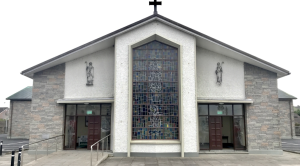
GOVERNMENTS OF many nations by law require church leaders to register the names of their churches. In Ghana, many Christian leaders comply with the directive. But do pastors really rush to the offices of the Registrar General’s Department (RGD) to register the names of Christ’s churches?
Impossible! Pastors register the names of denominations. In fact, names that are sent to RGD to be registered are not names of churches, but names of denominations which may be described as Non-Governmental Organizations (NGO). Christ’s churches do not have names that are registered with the governments of the world, but denominations do.
Thus, in Ghana, RGD officials require four basic things: a name the pastor wishes to register the denomination or organisation and registration fee. Also, three persons including the lead pastor are required to sign the registration documents of the organisation.
Finally, each of the persons is expected to provide their Taxpayer Identification Number (TIN), digital address, email address and postal address. The three may be described as the trustees of the organization. The registration is very important for administrative purposes especially in matters of banking and law.
However, God registers the names of His children, the assembly of believers who constitute the Church in the Lamb’s Book of Life.
Sadly, many understand the word “church” to mean the name pastors register with governments, a physical building or a place of worship. But scripturally, a church does not mean a physical building, denomination, a ministry. The biblical meaning of the word “church” goes beyond what the English dictionary gives.
For instance, if a church does refer to a building, a pastor may be required to submit the building documents when registering it with the RGD. Equally, a pastor does not register a church with RGD. If he does, he must submit the names of all the believers or be asked to go with all the saints to the RGD to have their names registered.
The point being made here is that in the New Testament, the Greek word which is commonly used for church is “ecclesia.” This word means, “those who are called”, “the elect of God”, the assembly of called out ones”, “congregation of the people of God” or “community of believers” with Jesus Christ as their King.
The meaning of “ecclesia” is different from another Greek word “kyriakon, which means the “Lord’s house.” From this word comes the English word “church” like the Scottish “kirk” and the German “Kirche.”
However, both ecclesia and kyriakon mean the same in application under the New Testament.
We know that under the Old Testament, the Lord’s house or the house of God referred to the tabernacle or temple which was built with materials such as woods, stones, gold, silver, bronze and others.
It was called the house of the Lord obviously because it housed the Ark of the Covenant in which the presence of God dwelled. Consequently, the Old Testament saints could say they went into the house of the Lord to worship. So, David would sing, “I was glad when they said unto me, let us go to the house of the Lord!” (Psalm 122: 1). In other words, it can safely be said that the Old Testament saints went to church (the house of the Lord) a place where God dwelled by the Ark of the Covenant.
However, the New Testament saints led by the Apostles rarely used the expression “going to church” “go to church” or “come to church”. Instead, they very often used the expression “gather together”. They understood that the ecclesia and kyirakon referred to believers and not a place of worship.
Carefully, let us consider the following verses of Scripture. Jesus Christ personally said, “For where two or three are gathered in my name…” (Matthew 18: 20). Then Paul wrote, “When you are assembled in the name of the Lord…” (1 Corinthians 5: 4). Paul wrote again “…when you come together as a church…” (1 Corinthians 11: 18).
Then Luke also wrote, “One the first day of the week, we were gathered together to break bread…” (Acts 20: 7). Finally, it is written in Hebrews 10: 25, “Not neglecting to meet together…”
From these verses of the Bible, you can see that the First Church rarely said they went to church. But in Acts 2: 46, Luke wrote, “And day by day, attending the temple together…” And in Acts 3: 3, Luke wrote again, “Seeing Peter and John about to go into the temple…” But, here, understand that the apostles were going into the already existing temple built under the Old Testament for God’s dwelling by the Ark of Covenant.
However, the early New Testament believers led by the foundational apostles knew about the change of God’s habitation or dwelling place. They knew by the indwelling of the Spirit of God in their hearts that their bodies had become the temples of God, the sanctuary of the Holy Spirit, who lived within them.
This means the body of the Christian is the house of God under the New Covenant which must be kept pure, holy and righteous to honour God. Thus, Paul reminded the Corinthian believers saying, “Or do you not know that your body is a temple of the Holy Spirit within you…?” (1 Corinthians 6: 19).
Again, Paul wrote in his second letter to the believers in Corinth, “What agreement has the temple of God with idols? For we are the temple of the living God; as God, said, ‘I will make my dwelling among them and walk among them…” (2 Corinthians 6: 16).
By James Quansah
Thank you for reading. You may support this ministry financially by sending your donation to MTN MERCHANT ID: 951275 or MOBILE MONEY NUMBER: 05301659. God bless you.
James Quansah is the Executive Director of Christ-Conscious Leadership Centre (CLC) and lead Pastor of End-Time Christ’s Commissioners (ECC), Kumasi, Ghana. James is also a journalist by profession. He is married with four children.
 clcgh.org Building The Capacity Of Christian Leaders, Equipping The Saints For The Work Of Ministry, Redirecting Straying Christians To The Sound Knowledge Of Christ
clcgh.org Building The Capacity Of Christian Leaders, Equipping The Saints For The Work Of Ministry, Redirecting Straying Christians To The Sound Knowledge Of Christ



